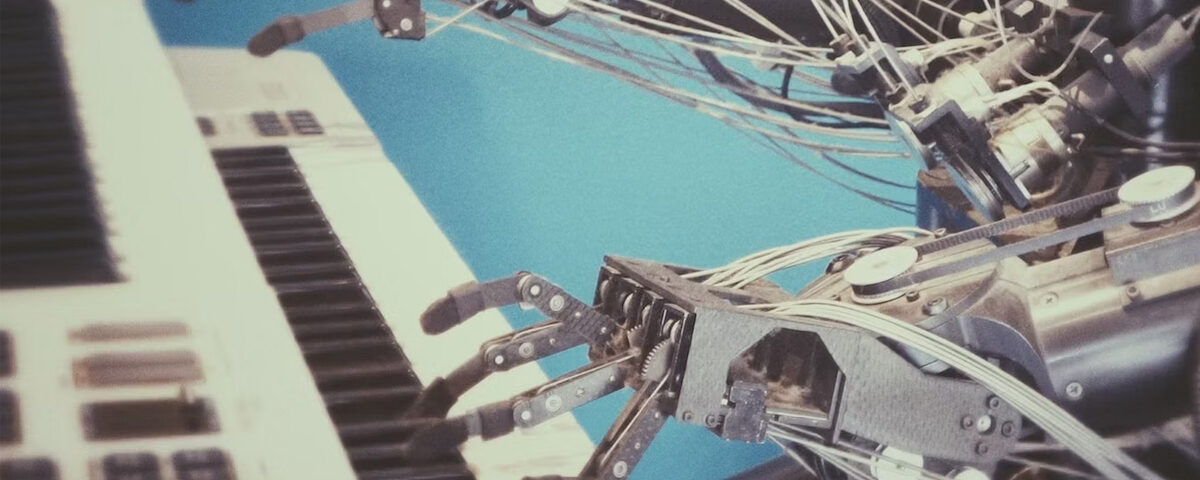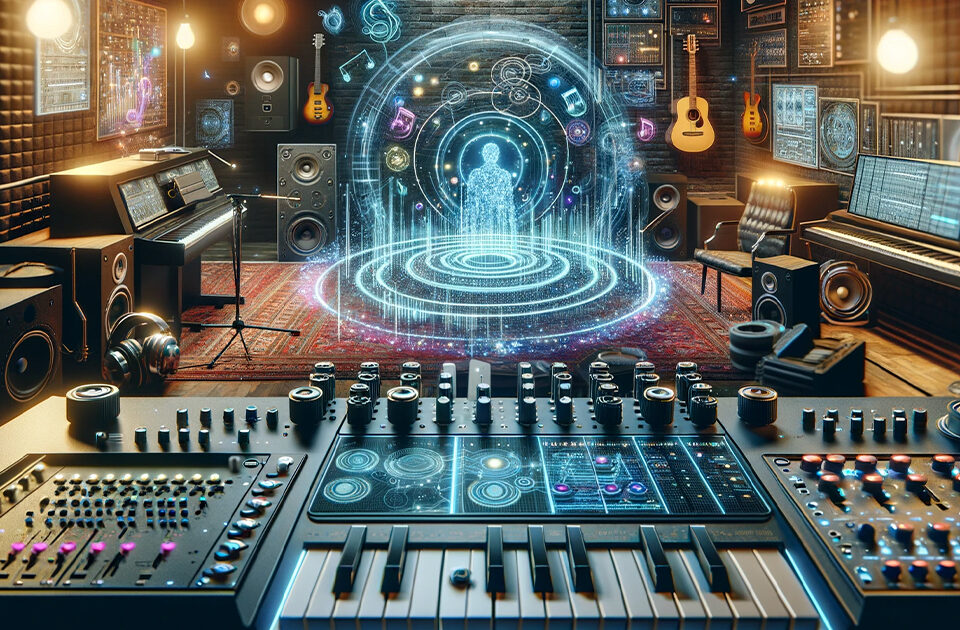AI-Assisted Music Production – Revolutionising the Sound of Tomorrow
The world of music production is constantly evolving, and artificial intelligence (AI) is at the forefront of this revolution. As AI technology advances, it continues to reshape the way music is created, produced, and consumed. From generating original melodies and chord progressions to designing unique sounds and effects, AI is rapidly becoming an indispensable tool for music producers, composers, and musicians.
This article explores how AI technology is being used in music production, highlighting its potential to revolutionise the industry, democratise access to music-making tools, and foster new forms of creative expression. We will also discuss the implications of AI-assisted music production for the broader music ecosystem, as well as ethical considerations and challenges that lie ahead.
Melody Creation and AI
Melody generation is a core aspect of music composition. Traditionally, musicians and composers have relied on their intuition and creativity to develop captivating melodies. AI technology has introduced a new dimension to this process, enabling producers to generate endless streams of unique melodies with minimal effort.
Machine learning algorithms, such as OpenAI’s GPT-4, can analyse vast quantities of music data to recognise patterns and generate original melodies based on learned structures. This capability allows music producers to experiment with a wide variety of styles and genres, drawing on the AI’s extensive musical knowledge to create something truly unique. Additionally, AI-generated melodies can serve as inspiration for composers, sparking their creativity and fostering collaboration between human and machine.
AI-Driven Chord Progressions
A chord progression is the backbone of any musical composition, providing the harmonic foundation upon which melodies and rhythms are built. AI technology has made it possible to generate chord progressions that are both musically interesting and stylistically diverse.
By analysing large datasets of songs and identifying common patterns, AI can suggest chord progressions that adhere to the rules of music theory while also pushing the boundaries of creativity. This approach can help music producers and composers break free from conventional structures and explore new harmonic landscapes.
Sound Design and AI
Sound design is a crucial element of music production, as it encompasses the creation and manipulation of unique sounds and textures that give a composition its character. AI-assisted sound design is revolutionising this aspect of music production by providing producers with powerful tools to create entirely new sonic experiences.
Neural networks and machine learning algorithms can be trained to recognise and replicate specific sound characteristics, enabling music producers to generate unique sounds from existing samples or create entirely new timbres from scratch. AI-driven sound design tools can also help producers identify and isolate specific elements within a mix, making it easier to achieve the desired sonic balance.
The Democratisation of Music Production
AI-assisted music production has the potential to democratise the music creation process by making advanced tools and techniques accessible to a wider audience. With AI-driven platforms and applications becoming more affordable and user-friendly, aspiring musicians and producers no longer need extensive technical knowledge or expensive equipment to create professional-sounding music.
This democratization can also lead to greater diversity in the music industry, as creators from different backgrounds and with varied musical influences can access the same advanced tools and platforms, enabling them to share their unique perspectives and contribute to the evolution of music.
Ethical Considerations and Challenges
As with any technological advancement, AI-assisted music production brings about ethical considerations and challenges that must be addressed. One such concern is the potential for AI-generated music to dilute the value of human creativity and artistic expression. As AI becomes more adept at creating music, it may become difficult to distinguish between human and machine-generated compositions, raising questions about the role of human creativity in the music creation process.
Another ethical challenge involves intellectual property rights and copyright issues. As AI-generated music becomes more prevalent, it may be difficult to determine who owns the rights to a particular piece of music – the AI developer, the user of the AI system, or the AI itself.
Summary
AI-assisted music production is revolutionising the way music is created, produced, and consumed, offering unprecedented opportunities for innovation and experimentation. By harnessing the power of AI, music producers, composers, and musicians can push the boundaries of their creativity, exploring new sonic landscapes and redefining the future of music.
As the industry continues to evolve, it will be important to address the ethical considerations and challenges posed by AI-assisted music production in order to ensure a sustainable and equitable future for creators, listeners, and the broader music ecosystem.


